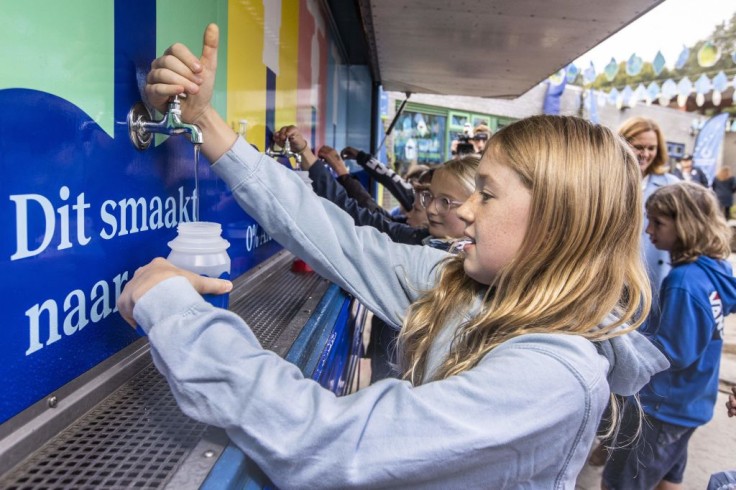
As temperatures soar during scorching heat waves, it becomes crucial for parents to prioritize the safety and well-being of their children.
Heat waves can pose serious health risks, especially to young people, who are more susceptible to heat-related illnesses.
In this comprehensive guide, we will explore effective strategies to protect your kids during heat waves. By implementing these smart tactics, you can ensure your children stay cool, hydrated, and safe in the face of rising temperatures.
Understanding Heat Waves
Before diving into protective measures, it is important to understand what heat waves are and why they can be dangerous.
Heat waves are prolonged periods of excessively hot weather, often accompanied by high humidity. These extreme conditions can put stress on the body's natural cooling mechanisms, leading to heat-related illnesses such as heat exhaustion and heatstroke.
Children, particularly infants and toddlers, are at higher risk due to their limited ability to regulate body temperature.
How To Protect Kids Against Heat Waves
Now, let's explore some smart strategies to safeguard your kids during heat waves:
- Stay Hydrated
Hydration is paramount during heat waves. Encourage your children to drink plenty of fluids throughout the day, even if they don't feel thirsty. Opt for water, fresh fruit juices, and sports drinks to replenish electrolytes. Steer clear of drinks high in sugar or caffeine as they have the potential to worsen dehydration. Set a timer or create a routine to remind your kids to take regular sips and stay adequately hydrated.
- Time Outdoor Activities Wisely
As recommended by Healthshots, during heat waves, it's essential to plan outdoor activities carefully. Avoid peak hours of intense heat, typically between 10 a.m. and 4 p.m. Schedule outdoor play, sports, or outings in the early morning or late afternoon, when temperatures are relatively cooler. Check the weather forecast regularly to stay informed about heat advisories or excessive heat warnings in your area. Be flexible with your plans and consider indoor alternatives if temperatures become dangerously high.
- Apply Sunscreen
Protecting your children's skin from harmful UV rays is crucial, especially during heat waves when the sun is intense. Apply a broad-spectrum sunscreen with a high SPF (sun protection factor) to all exposed areas of the skin. Make sure to reapply sunscreen at least every two hours, or more often if your child is perspiring or engaging in water activities. Additionally, dress your kids in lightweight, long-sleeved shirts and long pants to minimize direct sun exposure.
- Dress for the Weather
According to the CDC, choosing the right clothing can make a significant difference in keeping your children comfortable during hot weather. Opt for lightweight, loose-fitting, and breathable fabrics such as cotton, linen, or moisture-wicking materials. Light-colored clothing reflects sunlight, helping to keep the body cooler. Encourage your kids to wear hats and sunglasses to protect their heads and eyes from direct sunlight.
- Create Cool Spaces
Designate cool areas within your home where your kids can take refuge from the heat. Set up fans or install air conditioning to maintain a comfortable indoor temperature. If you don't have access to air conditioning, use fans strategically to circulate air and create a breeze. Close curtains or blinds during the hottest parts of the day to block out direct sunlight and keep rooms cooler. Consider creating a makeshift cool zone with a small inflatable pool or a sprinkler in your backyard for outdoor play.
- Encourage Rest and Shade
According to Healthy Children, excessive physical activity in extreme heat can lead to heat exhaustion or heat stroke. Encourage your children to take frequent breaks and rest in shaded areas. Plan quiet indoor activities such as reading, puzzles, or board games during the hottest parts of the day. Teach your kids to recognize the signs of heat-related illnesses, such as dizziness, nausea, headaches, or a rapid heartbeat. If any symptoms occur, move them to a cooler area immediately and seek medical attention if necessary.
- Stay Informed
Stay informed about heat wave alerts, warnings, and safety recommendations from local authorities and weather services. Sign up for emergency alerts on your mobile device or tune in to local news channels for updates. Being aware of the current weather conditions and taking appropriate precautions will help you make informed decisions to protect your children.
Heat waves can be challenging, but with proper planning and smart strategies, you can safeguard your kids against heat-related illnesses.
By implementing these measures, you can ensure the safety and well-being of your children during sweltering heat waves.
Remember, the key is to be proactive and take the necessary precautions to protect your kids against the heat's potentially harmful effects.